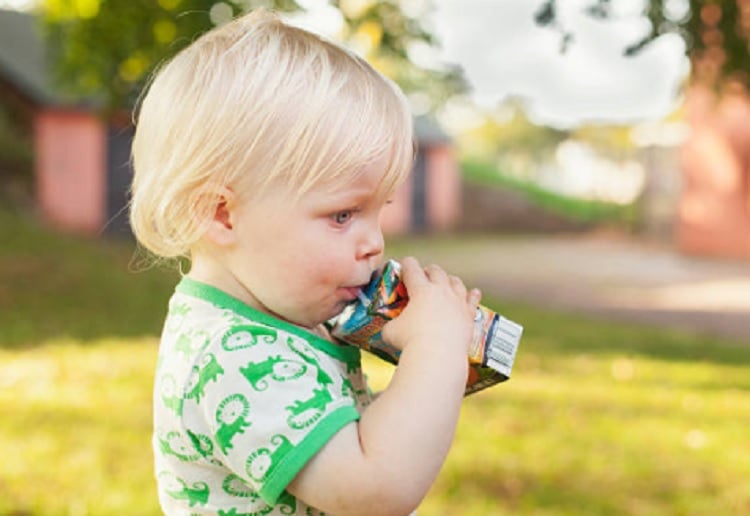Fruit juice for children younger than one year is strictly a no-no, according to new guidelines by the American Academy of Paediatrics.
The academy is also recommending limiting juice consumption for toddlers and older children in its new guidelines, as ABC News Chief Women’s Health Correspondent Dr. Jennifer Ashton explained today on “Good Morning America.”
“While some 100-percent fruit juice can be OK, in general it doesn’t pack the nutritional punch that a lot of parents think it does,” Dr. Ashton explained.
“The big difference is in the fiber,” she said. “That is really important for [gastrointestinal] issues, so you always want to reach for the whole fruit versus the juice.”
The paediatrics academy has in recent years advised against giving fruit juice to children younger than 6 months old, but the new guidelines expand that to children younger than 1.
– The recommendations also call for limiting juice consumption to half cup per day for toddlers who are 1 to 3 years old.
– Half cup – 1 cup maximum per day for children aged 4 to 6 years old.
– Children 7 to 18 years old, juice intake should be limited to 1 cup of the recommended 2 to 2 ½ cups of fruit servings per day.
The recommendations also advise,
- Toddlers should not be given juice from bottles or easily transportable “sippy cups” that allow them to consume juice easily throughout the day. The excessive exposure of the teeth to carbohydrates can lead to tooth decay, as well. Toddlers should not be given juice at bedtime.
- Children should be encouraged to eat whole fruits and be educated about the benefits of the fruit as compared with juice, which lacks dietary fiber and may contribute to excessive weight gain.
- Human milk or infant formula is sufficient for infants, and low-fat/nonfat milk and water are sufficient for older children.
- Consumption of unpasteurized juice products should be strongly discouraged for children of all ages.
- Children who take specific forms of medication should not be given grapefruit juice, which can interfere with the medication’s effectiveness. In addition, fruit juice is not appropriate in the treatment of dehydration or management of diarrhea.
They also added, “We know that excessive fruit juice can lead to excessive weight gain and tooth decay,” co-author Steven A. Abrams, MD, FAAP said. “Pediatricians have a lot of information to share with families on how to provide the proper balance of fresh fruit within their child’s diet.”
Is juice a sometimes treat in your house?
Share your comments below.




















-

-
-
mom94125 said
- 08 Oct 2017
-

-
-
mom221790 said
- 21 Jun 2017
-

-
-
june11 said
- 31 May 2017
-

-
-
mom101628 said
- 25 May 2017
-

-
-
mom81879 said
- 24 May 2017
-

-
-
mom206279 said
- 24 May 2017
-

-
-
Ellen said
- 24 May 2017

Post a comment10:57 am
10:11 pm
1:16 am
10:09 pm
6:55 pm
3:29 pm
1:22 pm
To post a review/comment please join us or login so we can allocate your points.